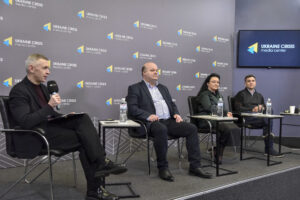
Caro Ames discusses the difficulties of navigating a monolithic working environment and how diversity is the key to change.
The STEM space, like the vast majority of industries worldwide, while thriving, comes with specific challenges and barriers that impact some groups more than others. Women, those from other countries, people with disabilities, people of colour and those from a poorer socio-economic background are often disregarded for a more ‘typical’ hire or promotion opportunity in the workplace.
But diversity of all kinds, is for Caro Ames, a principal in data and AI for data-driven consultancy firm JMAN Group, an imperative step in building an inclusive and supportive working environment.
“It is hard being a woman and in parallel managing the imposter syndrome that it comes with,” she told SiliconRepublic.com. “From school, where I was told by my male head of maths that I’d never get into Oxbridge to study engineering … through to university, where I felt continuously judged.”
Ames was the only applicant out of 13 in that secondary school class who applied to Oxbridge’s engineering programme and actually got accepted. But that didn’t prevent a male professor supervising her bachelor’s viva for computational engineering stating that he didn’t expect someone who looked like her to have produced the outcome that she did.
“Throughout my career I have always felt as an outspoken woman I was different and judged. I have almost always been the youngest person and only woman in the room. Whilst I strive to play the confident role model and leader I want to be, I struggle with imposter syndrome every day,” she said.
It is, however, improving, noted Ames, who has herself contributed significant time to mentoring and supporting women in the working environment, as they navigate similar challenges.
“Building inclusive and supportive environments is so important to achieving success in the data and AI space, and I encourage everyone to really think about how to make this happen, ensure a diverse group of voices are heard and ultimately support the development of a sector built on a diverse range of people and their ideas.”
Don’t hide
And that starts largely by ensuring that everyone in an organisation is visible, that their contribution is recognised and that opportunities are not given out based on ‘standard’ or ‘typical’ metrics that don’t take into account the increasingly diverse workforce.
“I have had very few (but a couple) of highly impactful female leaders to look up to in my career. Most notably Jean Innes, the CEO of the Alan Turing institute, Vikki Williams, the head of digital water, Arup and my mother, although she definitely still has no idea what I do,” jokes Ames.
“The ability to be visible and play a role in ensuring there are more of us, for women aspiring to build careers in this space, is hugely important and rewarding for me.”
And that is how it should be for everyone in the working environment. As an “openly neurodivergent” employee, Ames has spent the majority of her career not only figuring out the ways in which someone who thinks differently can navigate the workplace, but also how she can lend her voice and support to others.
The data and AI space, like every industry, has a responsibility to make itself accessible. Moreover, Ames is of the opinion that many career routes are suited to those who can think outside of the box.
“I think differently which makes me great at some things, for example processing large quantities of information and finding novel solutions to problems,” she explained. “In my opinion, data and AI leads as a career for neurodivergent people like me, so we need to be actively identifying ways to build positive and inclusive workspaces.”
She added, this needs to be a concerted effort in every workspace, but cited data and AI specifically, as it is her industry and one in which neurodivergent people can be hugely successful but can often experience burnout.
“Technology has a role to play here whether that’s noise cancelling headphones to help concentration, the use of AI to accelerate or manage administrative tasks such as note taking and timesheets. As well as in the future supporting the design of more inclusive workplaces.”
She urged everyone to have more faith in their abilities to contribute in data and AI, noting there are considerable opportunities for those who can “think beyond traditional technical roles.”
“Work out your identity and how to play to your strengths, even if it feels against the grain.”
Don’t miss out on the knowledge you need to succeed. Sign up for the Daily Brief, Silicon Republic’s digest of need-to-know sci-tech news.





